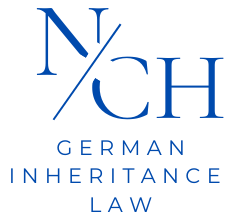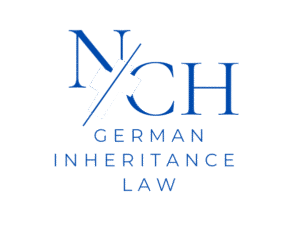Recognition of Foreign Wills in Germany: Why It Matters for U.S. Citizens
If you own property, bank accounts, or other assets in Germany, your U.S. will is not enough to guarantee a smooth transfer to your heirs. German probate law applies its own rules for validity and recognition—rules that often surprise even experienced estate planners. Without recognition, your carefully planned will could be ignored entirely in Germany.
Recognition of foreign wills is not a mere formality. It determines whether your wishes will actually be enforced under German law. If your will fails recognition, statutory succession rules apply—potentially giving shares of your estate to relatives you never intended to benefit. Executors named in a U.S. will may be blocked from acting, German banks may freeze accounts, and property transfers may stall for years. Recognition ensures your legacy is preserved exactly as you intended, even across borders.
- Your Will, Recognized. Your Legacy, Protected
- Why Recognition Matters
- Formal Validity vs. Material Validity
- Special Case: Joint Wills (Ehegattentestamente)
- Risks of Non-Recognition
- Requirements for Recognition
- Practical Scenarios
- Mistakes to Avoid
- Strategic Considerations for Cross-Border Families
- Frequently Asked Questions (FAQs)
- 5 Top Tipps
- Conclusion
Why Recognition Matters
Wills made abroad—such as under U.S. law—are not automatically valid in Germany. Recognition depends on compliance with the European Succession Regulation and other international rules. According to the Hague Convention on the Form of Wills, a will is considered formally valid in Germany if it complies with:
- The law of the state where it was executed
- The law of the testator’s nationality
- The law of the place of the testator’s last residence or habitual abode
- Or, in the case of real estate, the law of the state where the property is located
Formal Validity vs. Material Validity
Recognition requires distinguishing between two issues:
- Formal Validity: Is the will properly executed (e.g., handwritten, notarized, or in the required form)?
- Material Validity: Are the substantive provisions enforceable? This depends on the so-called hypothetical succession law, i.e., the law of the habitual residence at the time the will was made. The testator may also choose the law of their nationality.
For inheritance contracts (Erbverträge), stricter rules apply: validity depends exclusively on the hypothetical succession law, and no choice of law is possible.
Step 1
Step 2
Get a Legal Roadmap
Step 3
We Handle Everything
Special Case: Joint Wills (Ehegattentestamente)
Recognition of joint wills—such as the German Berliner Testament—is particularly problematic in international cases. Some countries (including Italy, Greece, and Portugal) do not recognize joint wills at all, viewing them as a violation of public policy (ordre public). For U.S. citizens with German assets, this means extreme caution is required when using joint wills in cross-border situations.
Risks of Non-Recognition
- German authorities, banks, or land registries may refuse to execute the will
- Probate proceedings become delayed and more expensive
- Statutory or compulsory-share (Pflichtteil) claims may override your intent
- Executors appointed abroad may lack authority in Germany
- Assets may remain frozen or pass to unintended heirs
Requirements for Recognition
To ensure a foreign will is recognized in Germany:
- Confirm formal validity under one of the accepted laws
- Include a clear choice-of-law clause
- Provide official translations and authentication (apostille)
- File the will with the competent German probate court or via a German consulate
- Anticipate scrutiny of trusts, joint wills, or ambiguous language
Practical Scenarios
- U.S. Citizens Owning German Property: Real estate in Germany must pass through German probate, regardless of a U.S. will
- German Citizens Living in the U.S.: Their German assets remain subject to German succession law
- Dual Citizens: Must comply with both systems—double compliance is key
- Executors Named Abroad: Without recognition, executors lack standing before German institutions
Mistakes to Avoid
- Ignoring the governing law clause—leads to unintended application of German law
- Using informal wills for complex estates—high risk of rejection
- Assuming U.S. trusts are automatically valid in Germany—they are not
- Filing too late—delays freeze assets and increase disputes
- Skipping legal review—minor defects can void an entire will
Strategic Considerations for Cross-Border Families
Recognition is more than a box-ticking exercise—it is the hinge on which international estate planning turns. Families with property in several jurisdictions must carefully coordinate their documents to ensure consistency. A U.S. will that contradicts a German inheritance contract, or a German joint will that is not enforceable abroad, can create conflicts that leave heirs tied up in litigation for years. Proper recognition planning means aligning documents, anticipating conflicts of law, and ensuring every will or contract is compatible across jurisdictions.
Frequently Asked Questions (FAQs)
5 Top Tipps
- Decide on the applicable law early and document it clearly.
- Avoid joint wills in international cases unless carefully reviewed.
- Always obtain certified translations and apostilles.
- Ensure executors are recognized under German law.
- Seek cross-border legal advice before finalizing your will.
Conclusion
Recognition of foreign wills in Germany is not optional—it is essential. Without it, even the most carefully planned U.S. estate can unravel once German law comes into play. Cross-border estates require precision, strategy, and coordination between legal systems.
German Attorney Nicola Casper-Hoesl provides expert, efficient, and tailored guidance in recognizing U.S. and other foreign wills in Germany—protecting your legacy and your heirs from unnecessary risk, cost, and stress.
Nicola is very knowledgeable about German /International Law and listens to her clients’ needs during challenging times in their lives.
She is very kind , responsive and efficient in her email & phone conversations. I was delighted to work with her in solving my niece’s case.
I highly recommend Nicola if someone needs any law advice about Inheritance or German/International law cases.
Provided expert legal guidance through a very complex inheritance situation involving German banks, courts, and tax authorities. Extremely detailed, diligent, and knowledgeable. I would not have been able to resolve all the legal issues without her help. Very highly recommended!
During a very challenging time both emotionally and logistically, I could always count on Nicola. She expertly guided me through the ins and outs of German inheritance law. It was a pleasure to work with her.
Nicola helped our family recover a €250k inheritance stuck in German probate—without us ever leaving California. Her team handled everything in 8 months.
Nicola is an exceptional attorney with extensive knowledge in German inheritance law. Navigating international legal matters can be frustrating and complex, but Nicola made the process smooth and stress-free. Her professionalism along with clear communication were invaluable throughout the entire ordeal.
If you are in need of a knowledgeable, reliable, and supportive lawyer for inheritance matters involving Germany, Nicola is the best choice! I highly recommend her.

